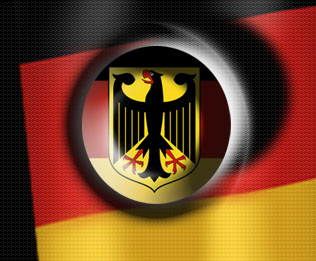Publishers set to row over e-book prices at Frankfurt Fair
 Frankfurt - Book publishers from round the globe are set to row over the price of electronic books when they meet next week for the Frankfurt Book Fair - the world's leading book fair that could see further controvery as it hosts China as special guest this year.
Frankfurt - Book publishers from round the globe are set to row over the price of electronic books when they meet next week for the Frankfurt Book Fair - the world's leading book fair that could see further controvery as it hosts China as special guest this year.
So-called e-books are the focus of the fair that runs from October
14 t- 19, the world's biggest marketplace for book rights, with more than 7,000 exhibitors from over 100 nations showing their latest titles and catalogues of their backlists.
Ahead of the fair, experts and publishers are differing profoundly on e-book pricing. Paper books, so the wisdom goes, are expensive to manufacture, while e-books, being only electronic signals, cost much less.
Sony, which makes devices to read books electronically, says the business can only grow if customers believe that downloading a file instead of taking home a bound volume brings clear savings.
The Book Fair organizers, US magazine Publishers Weekly and German magazine Buchreport recently surveyed 840 book industry experts in different nations and reported that half of them expect digital book sales to exceed print sales by 2018.
However, while 16 per cent of the experts said an e-book should cost at least 30 per cent less than a print book, 19 per cent thought it should cost the same or even more. Other estimates were spread even more widely.
Some publishers, especially in the United States and Britain, hope to sell books by the chapter in a micro-payment system - an approach that would also generate an overall higher income for publishers.
The business is about to get a fresh spurt with the Kindle, a book reader from US bookseller Amazon, to go on sale in 100 nations from October 19 at a cost of 279 dollars. Initially however, it will only offer books in English.
In the past week, the research firm Forrester predicted world sales of all e-readers this year will reach 3 million rather than 2 million as initially assumed.
Curiously, the Publishers Weekly survey found that only 22 per cent of the book industry experts surveyed in Europe, the United States, Asia and Latin America themselves use an e-reader.
"The sector is still looking for strategies to make money out of digital content," explained the editor of Buchreport, Thomas Wilking.
"They need business models that can complement and later replace the well-tried model of selling packages of printed paper for money."
Some of the ideas include offering commuters subscriptions to thrillers they can read on mobile phones, or providing textbooks on flexible tablets that use e-ink. Products that meld video and text are also being experimented with.
After initial alarm, the industry now sees digital books as an opportunity, not a threat. The survey suggested publishers are much more preoccupied with the development of the e-book than with any temporary dip in book sales during the current recession.
Fair organizers say the industry in Europe is showing fewer scars from the recession than expected, and the fair is likely to attract nearly 300,000 visitors, the same tally as last year.
However many US publishers, who have suffered sales slumps, are reducing the size of their booths to save money, while German publishers are cramping spending on their traditionally luxurious parties in Frankfurt hotels.
The fair is also the biggest annual sales event for German books, with tens of thousands of German readers coming to take a look.
The role of China as official guest of honour - represented with a party of nearly 1,000 delegates - has prompted controversy ahead of the fair.
Beijing forbade participation by two dissident authors, Dai Qing and Bei Ling, at a pre-fair symposium in Frankfurt on September 12- 13. Book Fair organizers responded and asked both to stay away.
Both attended anyway. The official Chinese delegation briefly walked out in protest, but critics said the book fair, which usually celebrates press freedom, had failed to stand up for democracy.
In a statement ahead of the fair, its director Juergen Boos admitted the fair "has a balancing act ahead of it with Guest of Honour China" but emphased the fair's goal was dialogue with official China" as well as other authors and intellectuals.
Organizers say any dissidents will have plenty of chances to speak during the many panel debates and German TV events at the fair itself. An envoy of the Dalai Lama and a spokesman for Uighur leader Rebiya Kadeer were set to attend some of these fringe events.
German Chancellor Angela Merkel is set officially to open the fair Tuesday evening with Chinese officials participating. The booths will open to visitors for the first time the following morning. (dpa)